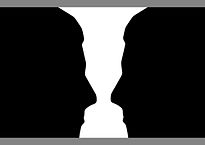The Skeptics' Guide to the Universe is the Swiss-Army knife for skepticism about the world around us. Steven Novella is a trained neurologist and along with his colleagues at the New England Skeptical Society, has been podcasting on science and skepticism since 2005 – in podcasting years that makes them one of the adults in the room. The book provides, as promised, a guide to the tools of skepticism, presented in an easily readable, enjoyable style.
Novella makes the distinction of skepticism from both cynicism, “…doubt as a social posture,” and being a contrarian, “reflexively opposed to all mainstream opinions.” Skepticism, for Novella, is not a noun but the practice of doubting, a verb. Skepticism, in its noun form, can be the antithesis of faith; but as a verb, it is a means of exploring all of our beliefs, not merely the scientific ones.
The book is broken into four sections. The first and most extended section covers four areas beginning with what he calls “neuropsychological humility,” that is understanding how our brain experiences and processes the world. An optical illusion shows our brain’s visual perception is limited, and that through no fault other than our biological  limitations, we make errors in perception. Novella describes and categorizes our mental illusions. The second section considers how we think, fallacies of logic and the ever-growing list of our biases.
limitations, we make errors in perception. Novella describes and categorizes our mental illusions. The second section considers how we think, fallacies of logic and the ever-growing list of our biases.
With a growing set of tools in hand, he then uses them to discuss the methodology of science. Science, the verb, is a way of exploring and explaining the world around us; science, the noun, is the theories we have created from that exploration. He points out that the scientific method is limited by our ability to measure and based upon repeatable testing. He rejects the idea that a “miracle” can be a useful explanation, although I failed to find a similar discussion of science’s “error term” – a “miracle” cloaked in mathematics and often invoked is what has been termed the soft sciences. This separation of science from pseudoscience is the American Council on Science and Health’s playground. As one of our readers you will be right at home with short chapters on the unfortunate use of anecdotes, to p-hacking, to the culturally embedded words we use, like natural or organic, to describe our experiences, testable or not.
In the last section of the toolkit, he presents “iconic examples,” so that we learn from and do not repeat history. My personal favorite is homunculus theory – “a class of medical philosophy that assumes one part of the body contains a functional map of the entire organism.” Our belief that this or that dietary product is the cause or relief of any disease is just an extension of that belief in a solitary controller.
In the remaining portions of the book, Novella provides examples of putting these tools to use, using a review of GMOs to point out the need to look at many sources, to follow those sources back to the primary documents [1], and with all arguments in hand to weigh them for yourself. Think of this section as a guide to self-directed peer-review. The next examples drawn from the world of media are both timely and timeless. He describes the origins of “fake” news, and how fair, and balanced may weigh the inconsequential too heavily resulting in imbalance and error.
The book ends with a “how to” for sharing your skepticism with others, in having conversations that prompt rethinking issues from both sides of the debate. This should be required reading for everyone who considers themselves a concerned individual. Novella provides tools that are as valuable and necessary as programming and using your cell phone. If only his message were as ubiquitous as I-phones.
The Skeptics' Guide to the Universe is available in brick and mortar bookstores today, as well on the usual online suspects.
[1] Following the evidence back to citations is very often a rewarding task, because often the citation is out of context or based on less than credible information. Roman Mars, from 99% Invisible puts it most succinctly, you “have to read the plaque.”
Optical illusion courtesy of Brocken Inaglory




